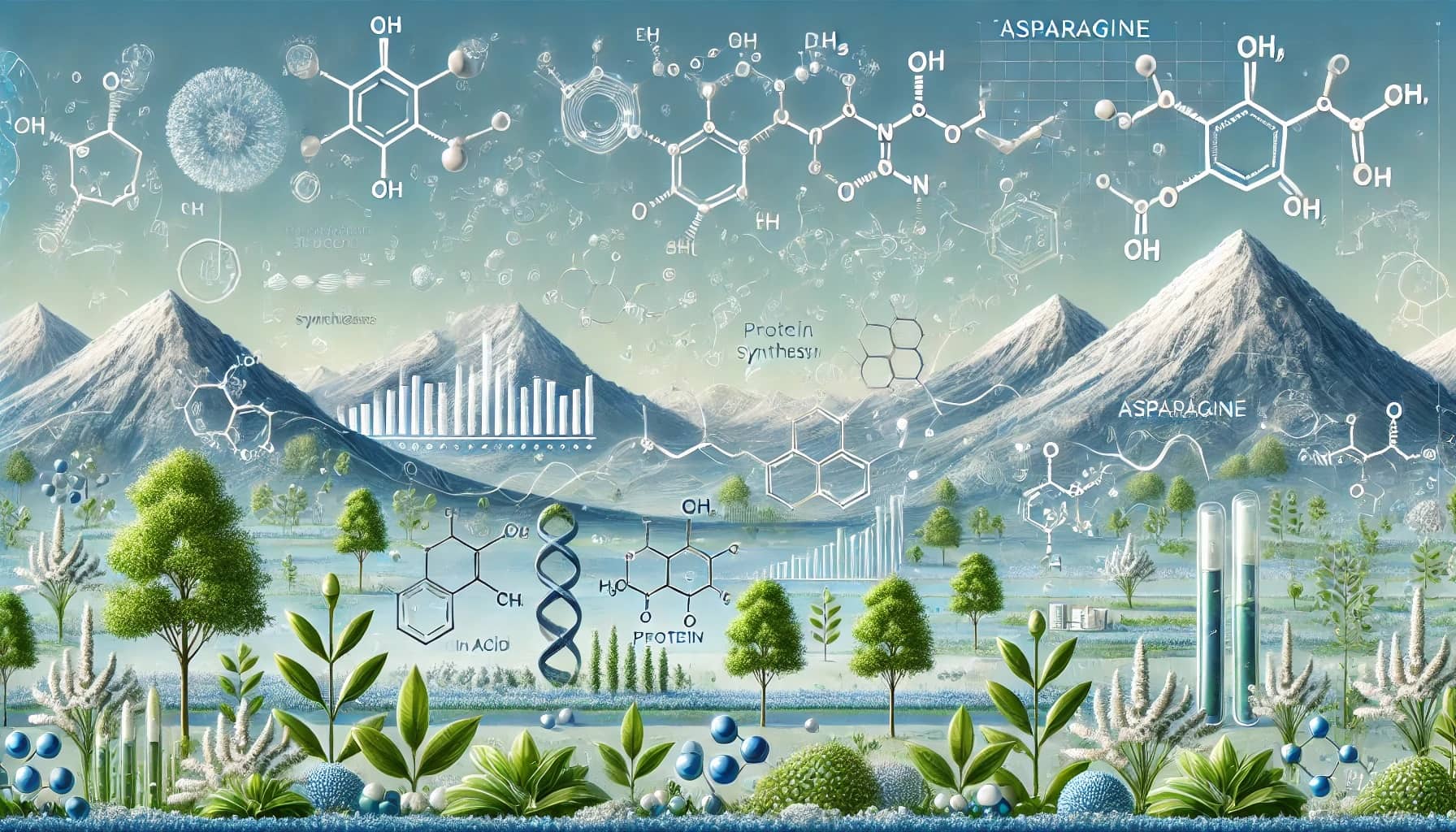
Asparagine is an amino acid that plays a crucial role in the body's metabolic processes. Ever wondered what makes this little molecule so important? Asparagine is essential for protein synthesis, which means it helps build the proteins that keep our bodies functioning. Found in many foods like dairy, eggs, and meat, it’s a key player in our diet. But there's more to it than just nutrition. Asparagine also contributes to brain function, helping with the synthesis of neurotransmitters. Curious about how this amino acid impacts your health? Let’s dive into 40 fascinating facts about asparagine that will leave you amazed!
What is Asparagine?
Asparagine is an amino acid, a building block of proteins. It plays a crucial role in the biosynthesis of glycoproteins and other proteins. Let's dive into some fascinating facts about this essential molecule.
-
Asparagine was the first amino acid to be isolated from its natural source, asparagus juice, in 1806 by French chemists Louis-Nicolas Vauquelin and Pierre Jean Robiquet.
-
It is one of the 20 amino acids encoded directly by the genetic code in humans.
-
Asparagine is classified as a non-essential amino acid because the human body can synthesize it from other compounds.
-
The chemical formula for asparagine is C4H8N2O3.
-
Asparagine is polar and hydrophilic, meaning it can form hydrogen bonds with water molecules.
Biological Functions of Asparagine
Asparagine has several important roles in the body. It is involved in protein synthesis and helps maintain cellular function.
-
It is crucial for the proper functioning of the nervous system.
-
Asparagine is involved in the metabolic control of cell functions in nerve and brain tissue.
-
It helps in the synthesis of glycoproteins, which are essential for cell-cell recognition and signaling.
-
Asparagine is necessary for the production of other amino acids, such as aspartate.
-
It plays a role in the urea cycle, helping to detoxify ammonia in the liver.
Dietary Sources of Asparagine
You can find asparagine in various foods. Including these in your diet can help maintain adequate levels of this amino acid.
-
Asparagus is one of the richest sources of asparagine.
-
Dairy products like milk, cheese, and yogurt contain significant amounts of asparagine.
-
Meat, poultry, and seafood are excellent sources of this amino acid.
-
Eggs also provide a good amount of asparagine.
-
Plant-based sources include soy, legumes, nuts, seeds, and whole grains.
Health Benefits of Asparagine
Asparagine offers several health benefits, contributing to overall well-being.
-
It supports brain function by aiding in the synthesis of neurotransmitters.
-
Asparagine helps maintain a healthy immune system.
-
It plays a role in the synthesis of proteins, which are vital for muscle growth and repair.
-
Asparagine can help improve mood and reduce symptoms of depression.
-
It aids in the detoxification process by helping to remove excess ammonia from the body.
Asparagine in Medical Research
Researchers are continually uncovering new information about asparagine and its potential applications in medicine.
-
Studies suggest that asparagine may play a role in cancer cell proliferation.
-
Researchers are investigating the potential of asparagine as a therapeutic target for certain types of cancer.
-
Asparagine levels are being studied in relation to metabolic disorders.
-
It is being explored for its potential role in neurodegenerative diseases like Alzheimer's.
-
Asparagine is also being studied for its effects on immune system function.
Asparagine and Food Processing
Asparagine can undergo chemical changes during food processing, which can have implications for health.
-
When foods containing asparagine are cooked at high temperatures, it can form acrylamide, a potential carcinogen.
-
Acrylamide formation is particularly common in starchy foods like potatoes and bread.
-
Reducing cooking temperatures and times can help minimize acrylamide formation.
-
Some food manufacturers are exploring ways to reduce asparagine levels in processed foods.
-
The FDA provides guidelines for reducing acrylamide in food products.
Interesting Facts About Asparagine
Here are some more intriguing tidbits about this versatile amino acid.
-
Asparagine is named after asparagus, the vegetable from which it was first isolated.
-
It is one of the few amino acids that can be synthesized by both plants and animals.
-
Asparagine is often used in cell culture media to support the growth of cells in laboratory settings.
-
It is involved in the synthesis of purines and pyrimidines, which are essential for DNA and RNA production.
-
Asparagine can be converted into aspartate, another important amino acid, through a process called deamidation.
Asparagine in Popular Culture
Asparagine has even made its way into popular culture in some interesting ways.
-
It was featured in an episode of the TV show "Breaking Bad," where it was used to explain the chemical process of making methamphetamine.
-
Asparagine has been mentioned in various scientific documentaries and educational programs.
-
Some health and wellness influencers promote asparagine-rich foods for their supposed cognitive benefits.
-
Asparagine has been the subject of numerous scientific studies, making it a popular topic in academic circles.
-
It continues to be a focus of research in the fields of nutrition, medicine, and biochemistry.
Final Thoughts on Asparagine
Asparagine plays a crucial role in our bodies. This amino acid helps with protein synthesis, supports brain function, and aids in the production of other amino acids. Found in foods like dairy, beef, poultry, eggs, fish, asparagus, and potatoes, it’s easy to incorporate into your diet. While generally safe, excessive intake might lead to health issues, so balance is key. Understanding asparagine’s benefits and sources can help you make informed dietary choices. Whether you’re a student, athlete, or just health-conscious, knowing about asparagine can enhance your nutritional knowledge. Stay curious, keep learning, and remember that even small nutrients like asparagine can have a big impact on your overall health.
Was this page helpful?
Our commitment to delivering trustworthy and engaging content is at the heart of what we do. Each fact on our site is contributed by real users like you, bringing a wealth of diverse insights and information. To ensure the highest standards of accuracy and reliability, our dedicated editors meticulously review each submission. This process guarantees that the facts we share are not only fascinating but also credible. Trust in our commitment to quality and authenticity as you explore and learn with us.


